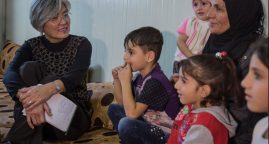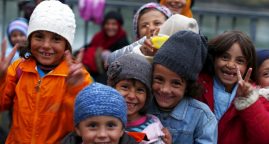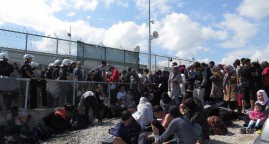“Inaction is sometimes more costly than action.”
Since the Arab Spring the situation of the Muslim world is experiencing a bloody evolution. The Syrian desert has become a battlefield between Sunnites and Shiites, the proponents of moderate Islam and fundamentalists.
Instability in the region has led to the deaths of nearly 250,000 people and to the displacement of nearly 4 million refugees.How can the internationalization of an initially local conflict be explained? Does the European Union, which is directly concerned by the terrorist threat from this region, have a role to play in the political process? If so, in what way?
Interview and response elements with Jean-Pierre Filiu, professor at Sciences Po (Paris), also teacher at the universities of Columbia (New York) and Georgetown (Washington). He recently published “The Arab Revolution, ten lessons on the democratic uprising” by Fayard.
Read the full article on the Robert Schuman Fundation website
Related Articles
New approach to internal displacement must aim for prevention, better solutions – UN deputy relief chief
10/24/2016. “Through this new way of working we must aim not only to save lives in the short term, but to work with development and other partners over years”, Kyung-wha Kang, the UN Deputy Emergency Relief Coordinator
4 maps that will change how you see migration in Europe
08/16/2016. Did you know that Polish people represent the highest percentage of the foreign-born population in Norway?
The Humanitarian Caste System?
09/30/2016. Syrians are everyone’s new favourite refugees. But the growing perception that they receive preferential treatment is undermining humanitarian principles.






